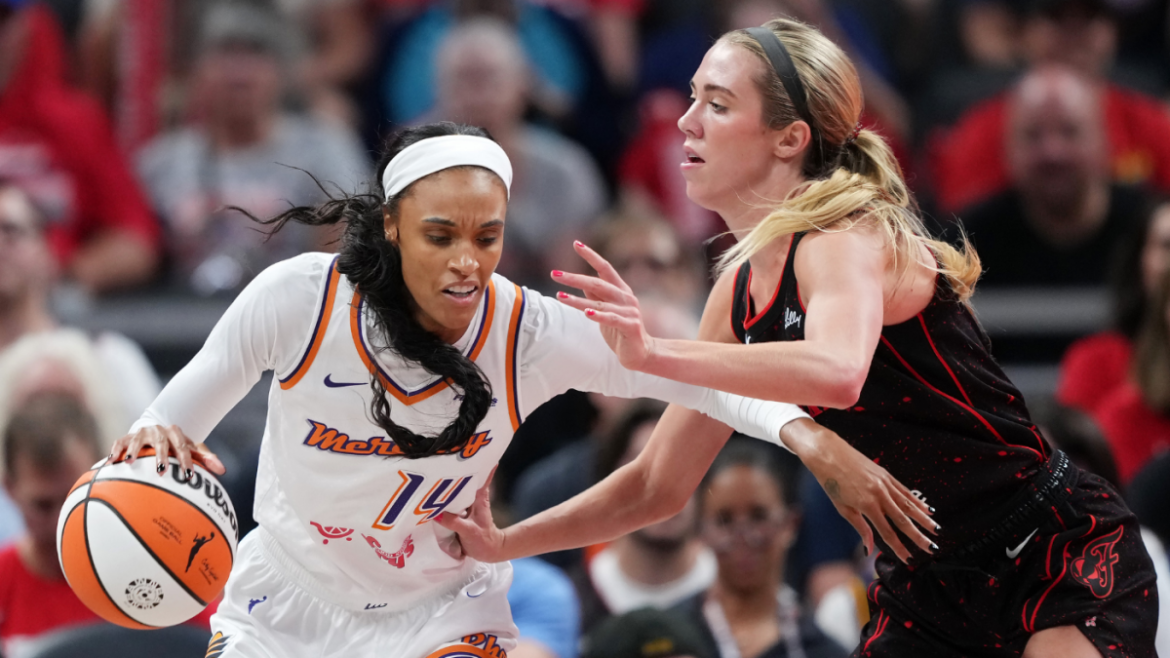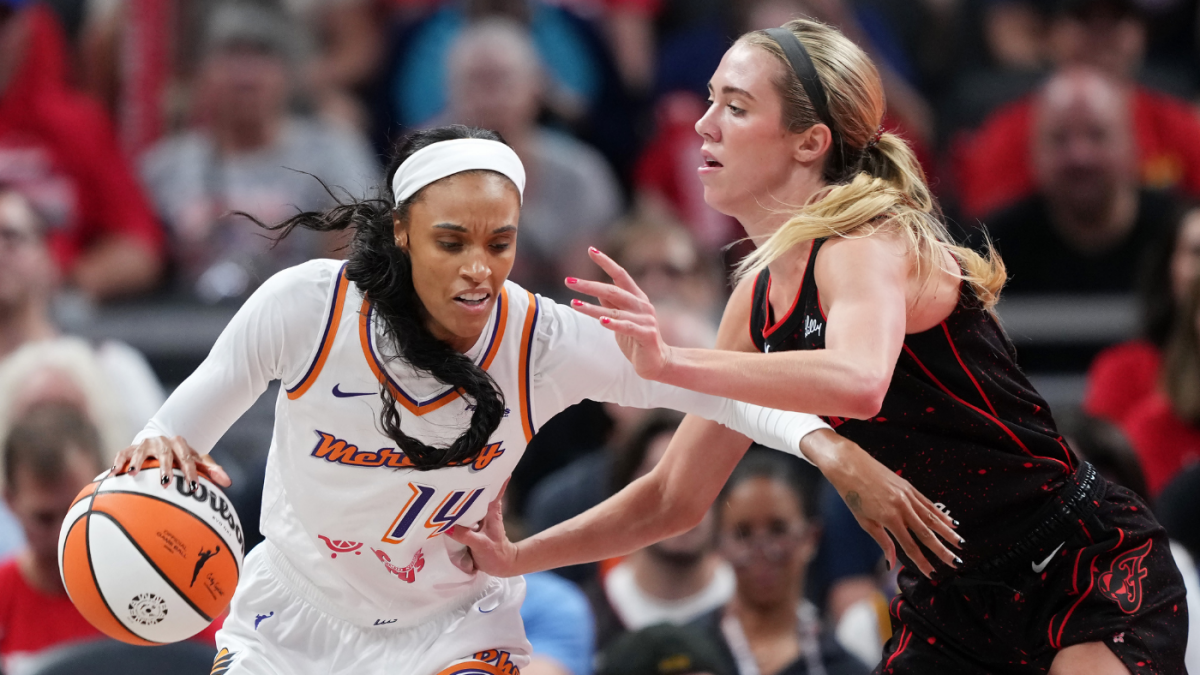The DeWanna Bonner Controversy: A Deep Dive into Fan Behavior and Player Loyalty in the WNBA
Introduction: The Storm Surrounding DeWanna Bonner
The world of professional sports is a stage where drama and competition collide, but few incidents have sparked as much debate as the recent controversy surrounding WNBA star DeWanna Bonner. Her return to Indiana as a member of the Phoenix Mercury was met with a storm of boos and jeers, igniting a conversation about fan behavior, player loyalty, and the often-unforgiving nature of professional sports. This report explores the events leading to this contentious homecoming, the reactions it provoked, and the broader implications for the WNBA.
The Short-Lived Fever Dream: Bonner’s Brief and Turbulent Tenure
To fully grasp the animosity directed at Bonner, it’s essential to examine her brief and tumultuous time with the Indiana Fever. Acquired with high expectations, Bonner’s stint in Indiana was far from smooth. Despite her impressive resume as a six-time WNBA All-Star, she struggled to integrate into the Fever’s system and build on-court chemistry with her teammates. Reports suggest that Bonner herself was unhappy with the situation and requested a trade, ultimately leading to her being waived and rejoining the Phoenix Mercury.
This abrupt departure, especially after only playing nine games, became a primary source of the fans’ frustration. Many felt betrayed by Bonner’s perceived lack of commitment to the team and the city. The quick turnaround and her return to Phoenix, where she had previously enjoyed considerable success, fueled the perception that Bonner had used the Fever as a stepping stone or simply wasn’t invested in the team’s long-term prospects. The fans’ reaction, labeling her a “quitter,” reflects this sense of betrayal and disappointment.
The Boos Echo Through Gainbridge Fieldhouse: A Hostile Homecoming
The stage was set for a tense atmosphere when Bonner and the Phoenix Mercury arrived at Gainbridge Fieldhouse. As Bonner checked into the game, the boos began, creating a palpable sense of hostility directed at the returning player. The jeers persisted throughout the contest, and reports indicate that the boos were widespread and continued throughout the game.
While some argue that booing is simply a part of the game—a way for fans to express their displeasure and support their team—others view it as disrespectful and unsportsmanlike, especially when directed at a player who was once expected to be a key contributor. The intensity of the boos raised questions about the boundaries of fan behavior and the impact it can have on athletes.
Kahleah Copper’s Strong Defense: A Voice of Reason Amidst the Chaos
Amidst the storm of boos and criticism, one voice rose to defend DeWanna Bonner: her Phoenix Mercury teammate, Kahleah Copper. Copper didn’t mince words, calling the Fever fans’ treatment of Bonner “distasteful” and emphasizing Bonner’s character as a “sweetest soul.” She argued that the situation simply “didn’t work” for Bonner and that the level of animosity was unnecessary.
Copper’s passionate defense highlights the camaraderie within the Mercury team and the players’ support for one another. Her comments also raise questions about the appropriateness of fan behavior and the impact it can have on athletes. Copper’s remarks underscore the human element often overlooked in the heat of competition, reminding fans that athletes are not simply performers but individuals with feelings and emotions.
Broader Implications for the WNBA: Player Movement and Fan Expectations
The DeWanna Bonner controversy extends beyond a single game or a specific player. It touches on several broader issues within the WNBA, including player movement, fan expectations, and the pressure on athletes to perform.
The WNBA, like other professional sports leagues, has seen an increase in player movement in recent years. Free agency and trades have become more common, allowing players to pursue better opportunities or seek out teams that better fit their playing style. However, this increased mobility can also lead to situations like the Bonner case, where fans feel betrayed by players who leave their teams after a short period.
Furthermore, the Bonner situation highlights the growing pressure on WNBA players, particularly those with high profiles. The league is experiencing a surge in popularity, driven in part by the arrival of stars like Caitlin Clark. This increased attention also brings increased scrutiny, with fans holding players to higher standards and reacting more strongly to perceived failures.
Navigating the Complexities of Professional Sports: Loyalty, Performance, and Fan Expectations
The DeWanna Bonner saga is a reminder of the complex dynamics that exist within professional sports. It’s a world where loyalty, performance, and fan expectations often collide, creating difficult situations for both players and teams. While fans have the right to express their opinions and support their team, it’s crucial to consider the impact of their actions on the athletes involved. Striking a balance between passionate support and respectful behavior is essential for maintaining a positive and welcoming environment in the WNBA and other professional sports leagues.
A Bitter Pill or a Necessary Lesson? The Legacy of the Bonner Controversy
Ultimately, the boos directed at DeWanna Bonner serve as a stark reminder of the intense emotions that sports can evoke. Whether the reaction was justified or simply an overreaction, it has undoubtedly left a mark on Bonner, the Fever organization, and the WNBA as a whole. Perhaps this incident will serve as a lesson, prompting fans to consider the human element behind the game and encouraging players to approach team commitments with greater care. Or perhaps it is simply another example of the harsh realities of professional sports, where loyalty is often fleeting and fan expectations can be unforgiving. Regardless, the DeWanna Bonner controversy is a compelling case study in the complex relationship between athletes, teams, and the passionate fans who support them.





